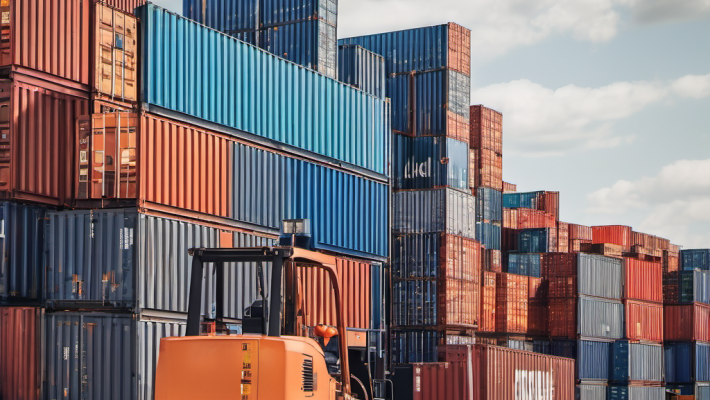Freight Forwarder Insights
Huin International Logistics Latest Articles
How do you understand freight forwarding in China?
Understanding Freight Forwarding
Freight forwarding involves the process of facilitating the shipment of goods from one location to another, either within a country or internationally. A freight forwarder acts as an intermediary, coordinating the transport of goods on behalf of individuals or businesses. While it may appear straightforward, the process involves navigating a range of regulations, including export, import, and customs documentation, as well as managing logistics networks and carriers. Freight forwarders handle these complexities, ensuring that large or high-volume shipments are transported efficiently and adhere to all necessary protocols.
Regulatory Aspects of Freight Forwarding
The freight forwarding industry is subject to regulation. In China, companies must comply with rules established by entities like Transport China and the China Border Services Agency (CBSA). Transport China oversees programs to ensure a safe and efficient transportation system nationwide, while the CBSA handles border security and customs services. Freight forwarders must register with the CBSA and adhere to its stringent import and export compliance standards.
How Freight Forwarding Works
Once you engage a freight forwarder and provide shipment details, they begin strategizing the most efficient and cost-effective transportation solutions. Typically, three main transport modes are considered: air, ocean, and ground freight. Often, a combination of these methods is used to ensure seamless door-to-door delivery.
Air Freight: The Quick and Adaptable Choice
Air freight is ideal for smaller or time-sensitive shipments and offers reliable tracking and delivery timeframes. Customers can choose from a range of delivery speeds and destinations, providing unparalleled flexibility.
Ocean Freight: Economical for Large Shipments
For larger items, such as cars or household goods, ocean freight is a viable option. This mode relies on container shipping, allowing for both Full Container Loads (FCL) and Less than Container Loads (LCL) to be transported to major ports worldwide.
Ground Freight: The Reliable Overland Option
Ground freight is instrumental for domestic transportation and can also manage cross-border shipments. This mode is flexible, supporting everything from Full Truck Loads (FTL) to Less than Truck Load (LTL) shipments. Freight forwarders often leverage trucking and rail to move goods to air and sea terminals.
Choosing HUIN Logistics for Your Shipping Needs
Navigating the complexities of personal or commercial shipping does not have31913Understanding Freight Forwarding
Freight forwarding involves coordinating the shipment of goods from one location to another, be it within a country or across international borders. This process is undertaken by a freight forwarder, which is a company specializing in logistics on behalf of individuals or organizations. While it sounds straightforward, it involves managing shipping regulations, customs policies, logistics networks, and intricate documentation, ensuring goods are transported safely and on time.
Freight forwarding is a highly regulated industry. In China, for example, compliance with transport and customs regulations is overseen by Transport China and the China Border Services Agency (CBSA). Transport China ensures safe and effective transport across all parts of the national transportation system, while the CBSA handles border security and customs services. Freight forwarders in China must be registered and adhere to strict compliance guidelines set by the CBSA.
How Freight Forwarding Operates
When engaging with a freight forwarder, you begin by providing details about your shipment. The forwarder then determines the most efficient and cost-effective transportation method to deliver your goods, utilizing a combination of domestic and international carriers. The three primary modes include air freight, ocean freight, and ground freight.
Air Freight: For Speed and Flexibility
Air freight is ideal for smaller or time-sensitive shipments. This option offers time-definite shipping and comprehensive tracking, providing confidence and reassurance. Customers can often choose from various delivery speeds and destinations, making air freight exceptionally flexible.
Ocean Freight: Economical for Larger Shipments
For transporting large or bulky items, such as vehicles or commercial goods, ocean freight offers a reliable solution. It involves container shipping, where freight forwarders can manage both full container loads (FCL) and less than container loads (LCL) to major global ports.
Ground Freight: Overland Transport by Road or Rail
Ground freight is essential for domestic shipments and can also be used for cross-border transport. This method is versatile, accommodating shipments of all sizes, from full truckloads (FTL) to less than truckload (LTL) shipments. Freight forwarders often use ground freight to connect shipments to air and sea terminals.
Choose HUIN Logistics for Superior Freight Services
Transporting shipments, whether personal or commercial, can be complex. By enlisting the expertise of HUIN Logistics, a company with over 13 years of service in the Vancouver area, you can simplify the process. They handle logistics, paperwork, and ensure the safe delivery of items like home furnishings, vehicles, or commercial orders. HUIN Logistics prioritizes customer satisfaction and reliable shipment handling.
